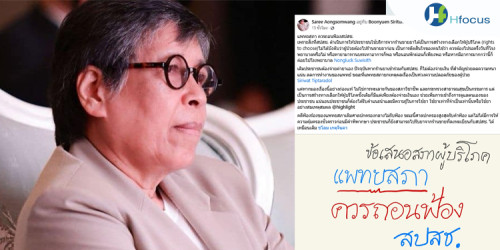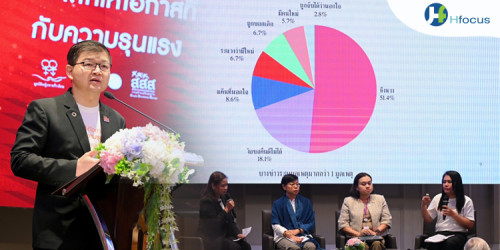Medical workers from rural areas vow to protest today and every Tuesday over Pay for Performance until minister resigns. The newly launched concept of Pay for Performance has gone off like a bomb in the public-health system.
The rift among staff who work in cities and towns and those working in rural areas is becoming much wider than before. Today, rural medical workers will stage a major protest in front of Government House in a bid to oust Public Health Minister Pradit Sinthawanarong for proposing the new method of pay calculation.
But yesterday, more than 4,000 medical workers from town-based hospitals showed up at the Public Health Ministry to express support for Pradit. Their work zones are in towns, which deprives them of a special allowance for medical workers in rural zones. With the Pay for Performance concept, they look set to enjoy better pay for the huge workload they have long shouldered.
Although town-based medical workers have usually enjoyed access to better facilities and infrastructure, they have often tended to patients with more complicated conditions. Smaller hospitals in remote areas need to refer patients with serious symptoms to better facilities in bigger medical centres.
Pradit had expected the Pay for Performance policy to take effect from April 1 next year.
However, Rural Doctor Society chairman Kriengsak Watcharanukulkiat, vowed to oust Pradit before the method takes effect.
"The Pay for Performance method is going to ruin the country's public-health system," Kriengsak said yesterday.
He said at least 5,000 medical workers from rural areas would mass at Government House today to tell Pradit that Pay for Performance is neither good nor acceptable. Rural-based medical workers say they will stage their protest every Tuesday until Pradit bows out.
"We need to retain medical workers and medical specialists in rural areas for the sake of people in remote areas," Kriengsak said.
Medical workers in remote areas have long been entitled to a special allowance. The amount, however, was rather low during the first few decades and it was a reason why there was a severe shortage of medical workers in the rural zones for many years. But in 2008, the government offered a higher special allowance by adding up the number of years that medical workers have worked in rural areas.
Apart from doctors, nurses, dentists and pharmacists are also entitled to a special allowance.
"Pradit will drag the public health system that provided for people living in rural areas backward if he still goes ahead with his plan," Dr Suphat Ha-Suwankit said. He is the director of a state hospital in Songkhla's Chana district.
Dr Suphat said the current allowance based on remote area status encouraged many medical workers to work at rural hospitals.
"In 2008, there were just 1,000-something doctors in rural areas. Today, their number has jumped to over 4,000. Of them, 200 are medical specialists," Kriengsak pointed out.
So, he insisted that the country needed to continue with the initiative launched in 2008.
"After 21 years of work in rural areas, my special allowance, plus allowance for my medical expertise stands at around Bt30,000 a month. I don't think it's too high," Kriengsak said.
He shrugged off criticism that some old doctors hardly work now but earn payment because of the number of service years counted in the current pay-calculation. Kriengsak said just three doctors in rural areas earn more than Bt70,000 in special allowance.
"If the doctors in rural zones do not get a reasonable special allowance, many will just leave," he said. His group is gathering signatures to fight the Pay for Performance plan.
Meanwhile, Dr Prachumporn Booncharoen, president of the Thai Federation of General and Central Hospital Doctors, has already submitted 20,000 signatures to Pradit to show how many medical workers agree with the new pay-calculation method.
She insists Pay for Performance would not hurt medical services at hospitals.
"It will only encourage medical workers to work to the best of their abilities," Prachumporn said.
Source: The Nation March 26, 2013
- 4 views








